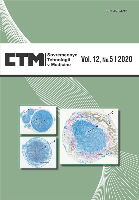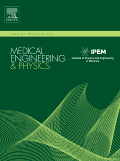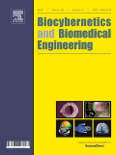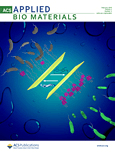
Bioengineering-Basel
Scope & Guideline
Connecting Ideas, Transforming Bioengineering
Introduction
Aims and Scopes
- Biomedical Engineering Applications:
Research related to the design and development of medical devices, prosthetics, and implants that improve patient care and treatment outcomes. - Tissue Engineering and Regenerative Medicine:
Studies focusing on the development of scaffolds, biomaterials, and cellular therapies aimed at repairing or replacing damaged tissues and organs. - Biomaterials and Drug Delivery Systems:
Exploration of new materials and methods for drug delivery, including nanotechnology and biocompatible materials that enhance therapeutic efficacy. - Medical Imaging and Diagnostics:
Innovations in imaging technologies, including machine learning applications for enhanced diagnostic capabilities and analysis of medical images. - Bioinformatics and Computational Biology:
Research utilizing computational tools and bioinformatics approaches to understand biological processes and improve disease diagnosis and treatment. - Artificial Intelligence in Healthcare:
Application of AI and machine learning techniques to enhance medical diagnostics, patient monitoring, and personalized treatment strategies.
Trending and Emerging
- 3D Bioprinting and Biofabrication:
There is a notable rise in research focusing on 3D printing technologies for creating complex biological structures, including organs and tissues, reflecting the growing interest in personalized medicine. - Artificial Intelligence and Machine Learning:
The application of AI and machine learning techniques in various aspects of healthcare, from diagnostics to predictive modeling, is increasingly prevalent, driving innovative research methodologies. - Smart Biomaterials and Drug Delivery Systems:
Emerging studies are focusing on developing responsive biomaterials that can deliver drugs in a controlled manner, enhancing therapeutic outcomes. - Organ-on-a-Chip Technology:
Research on organ-on-a-chip systems is gaining momentum, providing advanced platforms for drug testing and disease modeling, reflecting a shift towards more physiologically relevant preclinical models. - Telemedicine and Remote Monitoring Technologies:
The COVID-19 pandemic has accelerated interest in telehealth solutions and remote monitoring systems, which are increasingly being integrated into bioengineering research.
Declining or Waning
- Traditional Biomaterials Research:
Research on conventional biomaterials is becoming less prominent as newer, more advanced materials and techniques (like 3D bioprinting and smart biomaterials) take precedence. - Basic Biological Studies:
There is a decreasing trend in studies that focus solely on basic biological mechanisms without an engineering or applied context, as the journal shifts toward more translational research. - Non-Advanced Imaging Techniques:
Publications centered on older imaging technologies are waning as innovative imaging methods, such as AI-enhanced imaging techniques, gain more traction. - Single-Discipline Focused Research:
Research that does not incorporate interdisciplinary approaches is becoming less common, as the trend moves towards integrative studies that combine multiple fields such as biology, engineering, and informatics.
Similar Journals

BIOMEDICAL MICRODEVICES
Bridging Engineering and Biology for Healthier FuturesBIOMEDICAL MICRODEVICES is a leading journal published by Springer that focuses on the innovative field of microdevices within biomedical engineering. With an ISSN of 1387-2176 and an E-ISSN of 1572-8781, BIOMEDICAL MICRODEVICES offers a prestigious platform for researchers to disseminate their findings from 1998 to 2024, demonstrating a long-standing commitment to advancing knowledge in this critical area. The journal is recognized for its significant contributions, boasting a Q2 ranking in Biomedical Engineering and Nanoscience and Nanotechnology, and a Q3 rank in Molecular Biology. Renowned for its rigorous peer-review process, it is positioned within the top 30% of its field according to Scopus rankings, making it a valuable resource for researchers and practitioners alike. Though it operates under a subscription model, the emphasis on quality and relevance within its scope ensures that BIOMEDICAL MICRODEVICES remains a vital source of cutting-edge research that bridges engineering and biological systems, fostering innovation and collaboration in the pursuit of novel health solutions.

ANNALS OF BIOMEDICAL ENGINEERING
Unveiling the science behind healthcare advancements.ANNALS OF BIOMEDICAL ENGINEERING is a premier journal in the field of biomedical engineering, published by Springer. Established in 1972, this journal has become a vital resource for researchers, professionals, and students engaged in the rapidly evolving domain of biomedical technology. With a commendable impact factor and ranked in the 76th percentile among its peers as per Scopus, it exemplifies excellence in disseminating critical research findings. The journal covers a broad scope of topics related to the integration of engineering principles with medical and biological sciences, facilitating innovations that enhance healthcare outcomes. Although open access is not offered in this journal, it remains an essential platform for scholarly communication, contributing to the continuous advancement of knowledge in biomedical engineering. ANNALS OF BIOMEDICAL ENGINEERING is not only a bridge for academics to share groundbreaking research but also an influential guide for practical applications in medicine and health technologies, making it a fundamental publication for its readership.

Sovremennye Tehnologii v Medicine
Unlocking New Frontiers in Medical ScienceSovremennye Tehnologii v Medicine is a prominent academic journal dedicated to the exploration and dissemination of contemporary technologies in the field of medicine. Published by the esteemed Nizhniy Novgorod State Medical Academy, this journal serves as a vital platform for researchers, healthcare professionals, and students seeking to stay at the forefront of advancements in biochemistry, genetics, and molecular biology. With an impact factor that positions it within the Q3 quartile for both Biochemistry, Genetics and Molecular Biology and Medicine categories as of 2023, it highlights a commitment to quality research. The journal, identified by the ISSN 2076-4243, provides a rich repository of knowledge for those interested in the innovative applications of medical science, contributing significantly to the academic discourse and the practical world of healthcare. With an open access option, it ensures that its valuable content is readily accessible to a global audience, fostering collaborative advancements in modern medical practices.

MEDICAL ENGINEERING & PHYSICS
Unveiling Breakthroughs in Medical Engineering & PhysicsMEDICAL ENGINEERING & PHYSICS, published by Elsevier Science Ltd, is an esteemed journal in the fields of Biomedical Engineering and Biophysics. With an ISSN of 1350-4533 and an E-ISSN of 1873-4030, it has established itself as a significant resource from its inception in 1994, continuing to deliver pivotal research up to 2024. This journal, categorized in the Q3 quartile for both Biomedical Engineering and Biophysics, holds a respectable position in Scopus rankings, boasting its relevance in the upper echelons of academic inquiry, particularly ranking #75/152 in Biophysics and #158/303 in Biomedical Engineering. Authors and researchers in these dynamic fields will find the journal’s rigorous peer-review process and commitment to publishing high-quality original research invaluable for advancing their work. Although the journal is not open access, it continues to attract submissions that push the boundaries of innovation and application in medical technologies, making it an essential resource for anyone dedicated to the integration of engineering principles with medical sciences.

Biocybernetics and Biomedical Engineering
Advancing the Frontiers of Biomedical InnovationBiocybernetics and Biomedical Engineering, published by ELSEVIER in the Netherlands, is a prestigious journal that stands at the forefront of the intersecting fields of biomedical engineering and artificial intelligence. With an impressive Impact Factor that places it in the Q1 category for Biomedical Engineering, this journal not only ranks 17th out of 303 in Scopus but also boasts a remarkable percentile ranking of 94th, highlighting its influence and relevance within the scientific community. Since its inception in 2008, Biocybernetics and Biomedical Engineering has aimed to publish cutting-edge research that integrates principles of cybernetics with technological advancements in health care, thereby fostering innovations that improve patient outcomes. Dedicated to advancing knowledge in biomedical technology, the journal serves as a vital resource for researchers, professionals, and students seeking to explore the latest developments and methodologies in the field.

Frontiers in Bioengineering and Biotechnology
Unlocking the Potential of Bioengineering and BiotechnologyFrontiers in Bioengineering and Biotechnology, published by FRONTIERS MEDIA SA in Switzerland, stands as a leading platform for innovative research and developments in the fields of bioengineering and biotechnology. Since its inception in 2013, this Open Access journal has garnered significant recognition, reflected in its impressive category rankings: Q1 in Biomedical Engineering and Q2 in Bioengineering, Biotechnology, and Histology for 2023. With a focus on fostering collaboration and knowledge sharing, it aims to provide researchers, professionals, and students with access to pioneering studies that push the boundaries of science and technology. The journal, which is indexed in prominent databases, boasts high visibility and impact, evidenced by its impressive rankings across various categories in Scopus. As it continues to converge from 2013 to 2024, Frontiers in Bioengineering and Biotechnology is dedicated to shaping the discourse in its field and promoting advancements that have the potential to transform healthcare and environmental sustainability.

Acta Biomaterialia
Unveiling Breakthroughs in Biomaterials ScienceActa Biomaterialia, published by Elsevier Science Ltd, is a leading journal in the fields of biochemistry, biomaterials, biomedical engineering, biotechnology, and molecular biology. With an ISSN of 1742-7061 and an E-ISSN of 1878-7568, this prestigious journal has secured a remarkable position in the academic community, evidenced by its inclusion in the Q1 category across multiple disciplines for 2023. It ranks impressively at #21 in biochemistry, #16 in biomedical engineering, #18 in biotechnology, and #11 in biomaterials, reflecting its high impact and relevance to ongoing research and development. The journal provides a platform for disseminating innovative research and advancements in the design and application of biomaterials, contributing to scientific discussions that propel the field forward. Although it does not currently offer open access options, Acta Biomaterialia continues to attract contributions that advance our understanding of biomaterials and their interactions with biological systems, ensuring that researchers, professionals, and students remain informed about the latest trends and breakthroughs in this rapidly evolving area of study.

Biomedical Physics & Engineering Express
Empowering Healthcare through Open-Access ResearchBiomedical Physics & Engineering Express, published by IOP Publishing Ltd, serves as a dynamic platform for the dissemination of groundbreaking research in the interdisciplinary domains of biomedical physics, engineering, and related fields. With a focus on innovative solutions for healthcare challenges, the journal extends its reach to a global audience, providing valuable insights that influence both academic research and practical applications. Operating under an open-access format, this journal ensures that vital scientific discoveries are readily available to researchers, professionals, and students alike. Ranking within the Q3 and Q4 quartiles across various categories—including Bioengineering and Biomedical Engineering—indicates its emerging influence in the scientific community since its inception in 2015. With an increasing footprint in Scopus rankings and a commitment to advancing knowledge in subfields such as biophysics and health informatics, Biomedical Physics & Engineering Express plays a crucial role in shaping future innovations in healthcare technology and patient care.

JOURNAL OF BIOMEDICAL MATERIALS RESEARCH PART B-APPLIED BIOMATERIALS
Exploring New Horizons in Applied BiomaterialsJOURNAL OF BIOMEDICAL MATERIALS RESEARCH PART B-APPLIED BIOMATERIALS, published by Wiley, is a leading journal in the field of biomaterials and biomedical engineering, with an impact factor reflected in its relevant Scopus rankings—including a Q2 position in Biomedical Engineering and Q3 in Biomaterials for 2023. This journal, with ISSN 1552-4973 and E-ISSN 1552-4981, serves as a vital platform for disseminating pioneering research and innovative applications of biomaterials. Positioned in the United States, it aims to bridge the gap between material science and biological applications, fostering collaboration among researchers, professionals, and students dedicated to advancing technology in healthcare. With a convergence of studies from 2003 to 2024 and a growing focus on open access, the journal ensures greater visibility and accessibility for groundbreaking research. Join us in exploring the dynamic field of biomaterials, as we push the boundaries of science and engineering for improved patient outcomes.

ACS Applied Bio Materials
Innovating the Future of Bioengineering and Materials ScienceACS Applied Bio Materials is a leading academic journal published by the American Chemical Society, focusing on the innovative intersection of bioengineering and materials science. Since its inception in 2018, the journal has established itself as a pivotal platform for disseminating impactful research within the fields of Biochemistry, Biomaterials, Biomedical Engineering, and Chemistry, often ranked in the top tiers of these categories. With an impressive impact factor, it holds a Q2 ranking in both Biochemistry and Biomaterials, and a prestigious Q1 ranking in Biomedical Engineering and miscellaneous Chemistry, underscoring its significance in advancing knowledge and practices across these disciplines. The journal’s editorial commitment to high-quality, peer-reviewed research ensures relevance and rigor, appealing to a diverse audience of researchers, professionals, and students keen to explore breakthroughs in bio-related materials technology. The access options enhance its visibility and reach, allowing for a broader dissemination of studies that drive innovation and collaboration in biotechnology and material sciences. Located in the heart of Washington, DC, ACS Applied Bio Materials serves as a crucial resource for advancing the future of healthcare, engineering, and materials research.